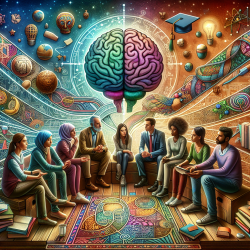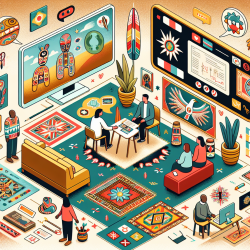Introduction
In the ever-evolving landscape of psychiatric practice, understanding the cultural dimensions of patient care has become increasingly significant. The research article, The Evolving Culture Concept in Psychiatric Cultural Formulation: Implications for Anthropological Theory and Psychiatric Practice, offers profound insights into this dynamic field. As practitioners, we have the opportunity to enhance our skills by integrating these insights into our practice, thereby fostering a more inclusive and effective therapeutic environment.
The Evolution of Cultural Concepts in Psychiatry
The article traces the journey of cultural concepts in psychiatric diagnosis from DSM-IV to DSM-5-TR, highlighting the shift from viewing culture as a static entity associated with ethnic minorities to a more dynamic, intersubjective model. This evolution reflects broader societal changes, including increased diversity and the urgent need for social justice, as exemplified by the response to George Floyd's death.
Implementing an Intersubjective Model
One of the key takeaways from the research is the proposal of an intersubjective model of culture. This model emphasizes the co-construction of cultural understanding between patients and clinicians. It moves beyond merely collecting patient meanings to examining clinician practices such as communication, diagnosis, and treatment recommendations. This approach not only enriches the therapeutic process but also addresses health disparities by recognizing the clinician's role in the cultural dynamic.
Practical Steps for Practitioners
Practitioners can take several steps to implement the insights from this research:
- Engage in Continuous Learning: Attend workshops and webinars on cultural competence and intersubjectivity to stay updated on best practices.
- Reflect on Personal Practices: Regularly assess how your cultural background and clinical practices influence patient interactions and outcomes.
- Utilize the Cultural Formulation Interview (CFI): Incorporate the CFI into your assessments to systematically explore cultural factors affecting diagnosis and treatment.
- Foster Open Communication: Encourage dialogue with patients about cultural differences and similarities to build trust and understanding.
Encouraging Further Research
While the current research provides a robust framework, further exploration is necessary to refine and expand the intersubjective model. Practitioners are encouraged to contribute to this evolving field by conducting studies and sharing findings on the impact of cultural dynamics in psychiatric practice.
Conclusion
By embracing the intersubjective model and integrating cultural insights into psychiatric practice, clinicians can enhance patient care and contribute to a more equitable healthcare system. This approach not only benefits individual patients but also strengthens the broader community by addressing systemic disparities.
To read the original research paper, please follow this link: The Evolving Culture Concept in Psychiatric Cultural Formulation: Implications for Anthropological Theory and Psychiatric Practice.










